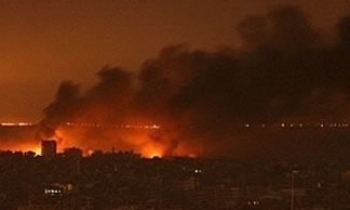An Egyptian appeals court on Tuesday overturned a one-year jail term on newspaper editor Ibrahim Issa, convicted of defaming President Hosni Mubarak, and substituted a fine of 22,500 Egyptian pounds ($3,950), according to news reports.

In his writings in the weekly newspaper al-Dustour, Issa had accused Mubarak of selling off state enterprises too cheaply and squandering foreign aid. Issa's frontpage columns have regularly attacked Mubarak and his family.
Defence lawyers and journalists who attended the court session criticised the new ruling because it upheld the conviction, a Reuters report said. A member of the defence team said they would take their appeal to the highest court in Egypt. "This is still a conviction," said Sayyed Abou-Zeid, one of the lawyers. "This verdict is an assault on the freedom of the press," he told reporters.
Issa said that the verdict was deceptive. "It is merciful on the outside but torture on the inside," he said. In June, the lower court also found Issa guilty of publishing false news after a lawyer sued his weekly newspaper al-Dustour on behalf of Mubarak for reporting incorrectly that an Egypt citizen had filed a lawsuit against the president.
That lawsuit had allegedly accused Mubarak of selling off state enterprises too cheaply and squandering foreign aid. Egyptian and international human rights groups had criticised the one-year jail sentence, saying it was part of a pattern of trying to silence critics. Issa remained out of jail on bail while the appeal went through.
In his writings in al-Dustour, the 41-year-old journalist and writer regularly attacks Mubarak, referring to him as the "pharaoh dictator". Authorities closed his newspaper for seven years from 1998 for its anti-government line. Issa's novel, The Killing of the Big Man, was banned in 1999 for its obvious allusions to Mubarak and was finally published n 2006.
Loose libel laws in Egypt make it easy for journalists to be sued and imprisoned, something the president promised to address in 2004. Issa says he is a target for attacks because he runs one of the highest selling weeklies in the country.
To date, Mubarak has failed to deliver on a highly publicised February 2004 promise to journalists that he would eliminate prison penalties against journalists in Egypt. The Egyptian Organization for Human Rights documented 85 criminal court cases brought against journalists from February 2004 to July 2006. Most of those prosecuted had written about official corruption, according to the Committee to Protect Journalists (CPJ).
On February 21, Reporters sans Frontières (RSF) said in a statement, “Article 48 of the Egyptian constitution guarantees press freedom. But in practice, a string of laws have turned respect for this principle into an exception. In addition to the legal provisions for sentencing journalists to prison terms, the state of emergency in force since Mubarak became president in 1981 means that anyone suspected of disturbing the peace can be held without charge for six months or even more in some cases.”









